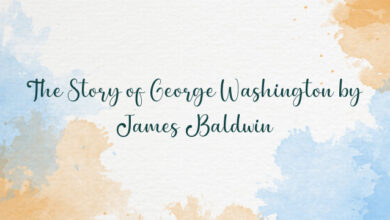
The Human Chord by Algernon Blackwood
Chapter 7
I
And thus the affair moved nearer to its close. The theory and practice of molding form by means of sound was the next bang at his mind–delivered in the clergyman’s most convincing manner, and, in view of the proofs that soon followed, an experience that seemed to dislocate the very foundations of his visible world, deemed hitherto secure enough at least to stand on.
Had it all consisted merely of talk on Mr. Skale’s part the secretary would have known better what to think. It was the interludes of practical proof that sent his judgment so awry. These definite, sensible results, sandwiched in between all the visionary explanation, left him utterly at sea. He could not reconcile them altogether with hypnotism. He could only, as an ordinary man, already with a bias in the mystical direction, come to the one conclusion that this overwhelming and hierophantic man was actually in touch with cisterns of force so terrific as to be dangerous to what he had hitherto understood to be–life. It was easy enough for the clergyman, in his optimistic enthusiasm, to talk about their leading to a larger life. But what if the experiment failed, and these colossal powers ran amok upon the world–and upon the invokers?
Moreover–chief anxiety of all–what was this name to be experimented with? What was the nature of this force that Skale hoped to invoke–so mighty that it should make them “as gods,” so terrible that a chord alone could compass even the first of its stupendous syllables?
And, further, he was still haunted with the feeling that other “beings” occupied certain portions of the rambling mansion, and more than once recently he had wakened in the night with an idea, carried over from dreams possibly, that the corridor outside his bedroom was moving and alive with footsteps. “From dreams possibly,” for when he went and peered shivering through the narrow crack of the half-opened door, he saw nothing unusual. And another time–he was awake beyond question at the moment, for he had been reading till two o’clock and had but just extinguished the candle–he had heard a sound that he found impossible to describe, but that sent all the blood with a swift rush from the region of his heart. It was not wind; it was not the wood cracking with the frost; it was not snow sliding from the slates outside. It was something that simultaneously filled the entire building, yet sounded particularly loud just outside his door; and it came with the abrupt suddenness of a report. It made him think of all the air in the rooms and halls and passages being withdrawn by immense suction, as though a gigantic dome had been dropped over the building in order to produce a vacuum. And just after it he heard, unmistakably, the long soft stride of Skale going past his door and down the whole length of the corridor–stealthily, very quickly, with the hurry of anxiety or alarm in his silence and his speed.
This, moreover, had now happened twice, so that imagination seemed a far-fetched explanation. And on both occasions the clergyman had remained invisible on the day following until the evening, and had then reappeared, quiet and as usual, but with an atmosphere of immense vibratory force somehow about his person, and a glow in his face and eyes that at moments seemed positively colored.
No word of explanation, however, had as yet been forthcoming of these omens, and Spinrobin waited with what patience he could, meanwhile, for the final test which he knew to be close upon him. And in his diary, the pages usually left blank now because words failed him, he wrote a portion of Anone’s cry that had caught his memory and expressed a little of what he felt:
... for fiery thoughts Do shape themselves within me, more and more, Whereof I catch the issue, as I hear Dead sounds at night come from the inmost hills, ''Like footsteps upon wool''....
II
It was within three days of the expiration of his trial month that he then had this conversation with the clergyman, which he understood quite well was offered by way of preparation for the bigger tests about to come. He has reported what he could of it; it seemed to him at the time both plausible and absurd; it was of a piece, that is, with the rest of the whole fabulous adventure.
Mr. Skale, as they walked over the snowy moors in the semi-darkness between tea and dinner, had been speaking to him about the practical results obtainable by sound-vibrations (what he already knew for that matter), and how it is possible by fiddling long enough upon a certain note to fiddle down a bridge and split it asunder. From that he passed on to the scientific fact that the ultimate molecules of matter are not only in constant whirring motion, but that also they do not actually touch one another. The atoms composing the point of a pin, for instance, shift and change without ceasing, and–there is space between them.
Then, suddenly taking Spinrobin’s arm, he came closer, his booming tone dropping to a whisper:
“To change the form of anything,” he said in his ear, “is merely to change the arrangement of those dancing molecules, to alter their rate of vibration.” His eyes, even in the obscurity of the dusk, went across the other’s face like flames.
“By means of sound?” asked the other, already beginning to feel eerie.
The clergyman nodded his great head in acquiescence.
“Just as the vibrations of heat-waves,” he said after a pause, “can alter the form of a metal by melting it, so the vibrations of sound can alter the form of a thing by inserting themselves between those whirling molecules and changing their speed and arrangement–change the outline, that is.”
The idea seemed fairly to buffet the little secretary in the face, but Mr. Skale’s proximity was too overpowering to permit of very clear thinking. Feeling that a remark was expected from him, he managed to ejaculate an obvious objection in his mind.
“But is there any sound that can produce vibrations fine and rapid enough–to–er–accomplish such a result?”
Mr. Skale appeared almost to leap for pleasure as he heard it. In reality he merely straightened himself up.
“That,” he cried aloud, to the further astonishment and even alarm of his companion, “is another part of my discovery–an essential particular of it: the production of sound-vibrations fine and rapid enough to alter shapes! Listen and I will tell you!” He lowered his voice again. “I have found out that by uttering the true inner name of anything I can set in motion harmonics–harmonics, note well, half the wave length and twice the frequency!–that are delicate and swift enough to insert themselves between the whirling molecules of any reasonable object–any object, I mean, not too closely or coherently packed. By then swelling or lowering my voice I can alter the scale, size or shape of that object almost indefinitely, its parts nevertheless retaining their normal relative proportions. I can scatter it to a huge scale by separating its molecules indefinitely, or bring them so closely together that the size of the object would be reduced to a practical invisibility!”
“Re-create the world, in fact!” gasped Spinrobin, feeling the earth he knew slipping away under his feet.
Mr. Skale turned upon him and stood still a moment. The huge moors, glimmering pale and unreal beneath their snow, ran past them into the sky–silent forms corresponding to who knows what pedal notes? The wind sighed–audible expression of who shall say what mighty shapes?… Something of the passion of sound, with all its mystery and splendor, entered his heart in that windy sigh. Was anything real? Was anything permanent?… Were Sound and Form merely interchangeable symbols of some deeper uncataloged Reality? And was the visible cohesion after all the illusory thing?
“Re-mold the whole universe, sir!” he roared through the darkness, in a way that made the other wish for the touch of Miriam’s hand to steady him. “I could make you, my dear Spinrobin, immense, tiny, invisible, or by a partial utterance of your name, permanently crooked. I could overwhelm your own vibrations and withdraw their force, as by suction of a vacuum, absorbing yourself into my own being. By uttering the name of this old earth, if I knew it, I could alter its face, toss the forests like green dust into the sea, and lift the pebbles of the seashore to the magnitude of moons! Or, did I know the true name of the sun, I could utter it in such a way as to identify myself with its very being, and so escape the pitiful terrors of a limited personal existence!”
He seized his companion’s arm and began to stride down the mountainside at a terrific pace, almost lifting Spinrobin from his feet as he did so. About the ears of the panting secretary the wild words tore like bullets, whistling a new and dreadful music.
“My dear fellow,” he shouted through the night, “at the Word of Power of a true man the nations would rush into war, or sink suddenly into eternal peace; the mountains be moved into the sea, and the dead arise. To know the sounds behind the manifestations of Nature, the names of mechanical as well as of psychical Forces, of Hebrew angels, as of Christian virtues, is to know Powers that you can call upon at will–and use! Utter them in the true vibratory way and you waken their counterpart in yourself and stir thus mighty psychic powers into activity in your Soul.”
He rained the words down upon the other’s head like a tempest.
“Can you wonder that the walls of Jericho fell flat before a ‘Sound,’ or that the raging waves of the sea lay still before a voice that called their Name? My discovery, Mr. Spinrobin, will run through the world like a purifying fire. For to utter the true names of individuals, families, tribes and nations, will be to call them to the knowledge of their highest Selves, and to lift them into tune with the music of the Voice of God.”
They reached the front door, where the gleam of lamps shone with a homely welcome through the glass panels. The clergyman released his companion’s arm; then bent down towards him and added in a tone that held in it for the first time something of the gravity of death:
“Only remember–that to utter falsely, to pronounce incorrectly, to call a name incompletely, is the beginning of all evil. For it is to lie with the very soul. It is also to evoke forces without the adequate corresponding shape that covers and controls them, and to attract upon yourself the destructive qualities of these Powers–to your own final disintegration and annihilation.”
Spinrobin entered the house, filled with a sense of awe that was cold and terrible, and greater than all his other sensations combined. The winds of fear and ruin blew shrill about his naked soul. None the less he was steadfast. He would remain to bless. Mr. Skale might be violent in mind, unbalanced, possibly mad; but his madness thundered at the doors of heaven, and the sound of that thundering completed the conquest of his admiration. He really believed that when the end came those mighty doors would actually open. And the thought woke a kind of elemental terror in him that was not of this world–yet marvelously attractive.III
That night the singular rushing sound again disturbed him. It seemed as before to pass through the entire building, but this time it included a greater space in its operations, for he fancied he could hear it outside the house as well, traveling far up into the recesses of the dark mountains. Like the sweep of immense draughts of air it went down the passage and rolled on into the sky, making him think of the clergyman’s suggestion that some sounds might require airwaves of a hundred miles instead of a few inches, too vast to be heard as sound. And shortly after it followed the great gliding stride of Mr. Skale himself down the corridor. That, at least, was unmistakable.
During the following day, moreover, Mr. Skale remained invisible. Spinrobin, of course, had never permitted himself to search the house, or even to examine the other rooms in his own corridor. The quarters where Miriam slept were equally unknown to him. But he was quite certain that these prolonged periods of absence were spent by the clergyman in some remote part of the rambling building where there existed isolated, if not actually secret, rooms in which he practiced the rituals of some dangerous and intrepid worship. And these intimidating and mysterious sounds at night were, of course, something to do with the forces he conjured….
The day was still and windless, the house silent as the grave. He walked about the hills during the afternoon, practicing his Hebrew “Names” and “Words” like a schoolboy learning a lesson. And all about him the slopes of mountain watched him, listening. So did the sheet of snow, shining in the wintry sunlight. The clergyman seemed to have put all sound in his pocket and taken it away with him. The absence of anything approaching noise became almost oppressive. It was a Silence that prepares. Spinrobin went about on tiptoe, spoke to Miriam in whispers, practiced his Names in hushed, expectant tones. He almost expected to see the moors and mountains open their deep sides and let the Sounds of which they were the visible shape escape awfully about him….
In these hours of solitude, all that Skale had told him, and more still that he divined himself, haunted him with a sense of disquieting reality. Inaudible sounds of fearful volume, invisible forms of monstrous character, combinations of both even, impended everywhere about him. He became afraid lest he might stumble, as Skale had done, on the very note that should release them and bring them howling, leaping, crashing about his ears. Therefore, he tried to make himself as small as possible; he muffled steps and voice and personality. If he could, he would have completely disappeared.
He looked forward to Skale’s return, but when evening came he was still alone, and he dined tete-a-tete with Miriam for the first time. And she, too, he noticed, was unusually quiet. Almost they seemed to have entered the world of Mrs. Mawle, the silent regions of the deaf. But for the most part it is probable that these queer impressions were due to the unusual state of Spinrobin’s imagination. He knew that it was his last night in the place–unless the clergyman accepted him; he knew also that Mr. Skale had absented himself with a purpose, and that the said purpose had to do with the test of Alteration of Forms by Sound, which would surely be upon him before the sun rose. So that, one way and another, it was natural enough that his nerves should have been somewhat overtaxed.
The presence of Miriam and Mrs. Mawle, however, did much to soothe him. The latter, indeed, mothered the pair of them quite absurdly, smiling all the time while she moved about softly with the dishes, and doing her best to make them eat enough for four. Between courses she sat at the end of the room, waiting in the shadows till Miriam beckoned to her, and once or twice going so far as to put her hand upon Spinrobin’s shoulder protectively.
His own mind, however, all the time was full of charging visions. He kept thinking of the month just past and of the amazing changes it had brought into his thoughts. He realized, too, now that Mr. Skale was away, something of the lonely and splendid courage of the man, following this terrific, perhaps mad, ideal, day in day out, week in week out, for twenty years and more, his faith never weakening, his belief undaunted. Waves of pity, too, invaded him for the first time–pity for this sweet girl, brought up in ignorance of any other possible world; pity for the deaf old housekeeper, already partially broken, and both sacrificed to the dominant idea of this single, heaven-climbing enthusiast; pity last of all for himself, swept headlong before he had time to reflect, into the audacious purpose of this violent and headstrong super-man.
All manner of emotions stirred now this last evening in his perplexed breast; yet out of the general turmoil one stood forth more clearly than the rest–his proud consciousness that he was taking an important part in something really big at last. Behind the screen of thought and emotion which veiled so puzzlingly the truth, he divined for the first time in his career a golden splendor. If it also terrified him, that was only his cowardice…. In the same way it might be splendid to jump into Niagara just above the falls to snatch a passing flower that seemed more wonderful than any he had seen before, but–!
“Miriam, tomorrow is my last day,” he said suddenly, catching her grey eyes upon him in the middle of his strange reflections. “Tonight may be my last night in this house with you.”
The girl made no reply, merely looking up and smiling at him. But the singing sensation that usually accompanied her gaze was not present.
“That was very nearly–a discord,” she observed presently, referring to his remark. “It was out of tune!” And he realized with a touch of shame what she meant. For it was not true that this was his last evening; he knew really that he would stay on and that Mr. Skale would accept him. Quick as a flash, with her simple intuition, she felt that he had said this merely to coax from her some sign of sympathy or love. And the girl was not to be drawn. She knew quite well that she held him and that their fate, whatever it might be, lay together.
The gentle rebuke made him silent again. They sat there smiling at one another across the table, and old Mrs. Mawle, sitting among the shadows at the far end of the room, her hands crossed in front of her, her white evening cap shining like a halo above her patient face, watched them, also smiling. The rest of the strange meal passed without conversation, for the great silence that all day had wrapped the hills seemed to have invaded the house as well and laid its spell upon every room. A deep hush, listening and expectant, dropped more and more about the building and about themselves.
After dinner they sat for twenty minutes together before the library fire, their toes upon the fender, for, contrary to her habit, Miriam had not vanished at once to her own quarters.
“We’re not alone here,” remarked Spinrobin presently, in a low voice, and she nodded her head to signify agreement. The presence of Mr. Skale when he was in the house but invisible, was often more real and tremendous than when he stood beside them and thundered. Some part of him, some emanation, some potent psychic messenger from his personality, kept them closely company, and tonight the secretary felt it very vividly. His remark was really another effort to keep in close touch with Miriam, even in thought. He needed her more than ever in this sea of silence that was gathering everywhere about him. Gulf upon gulf it rose and folded over him. His anxiety became every moment more acute, and those black serpents of fear that he dreaded were not very far away. By every fiber in his being he felt certain that a test which should shake the very foundations of his psychical life was slowly and remorselessly approaching him.
Yet, though he longed to speak outright and demand of Miriam what she knew, and especially that she should reveal the place of the clergyman’s concealment and what portent it was that required all this dread and muted atmosphere for its preparation, he kept a seal upon his lips, realizing that loyalty forbade, and that the knowledge of her contempt would be even worse than the knowledge of the truth.
And so in due course she rose to go, and as he opened the door for her into the hall, she paused a moment and turned towards him. A sudden inexplicable thrill flashed through him as she turned her eyes upon his face, for he thought at first she was about to speak. He has never forgotten the picture as she stood there so close to his side, the lamplight on her slim figure in its white silk blouse and neat dark skirt, the gloom of the unlit hall and staircase beyond–stood there an instant, then put both her arms about his neck, drew him down to her, and kissed him gently on both cheeks. Twice she kissed him, then was gone into the darkness, so softly that he scarcely heard her steps, and he stood between the shadows and the light, her perfume still lingering, and with it the sweet and magical blessing that she left behind. For that caress, he understood, was the innocent childlike caress of their first days, and with all the power of her loving little soul in it she had given him the message that he craved: “Courage! And keep a brave heart, dear Spinny, tonight!”




